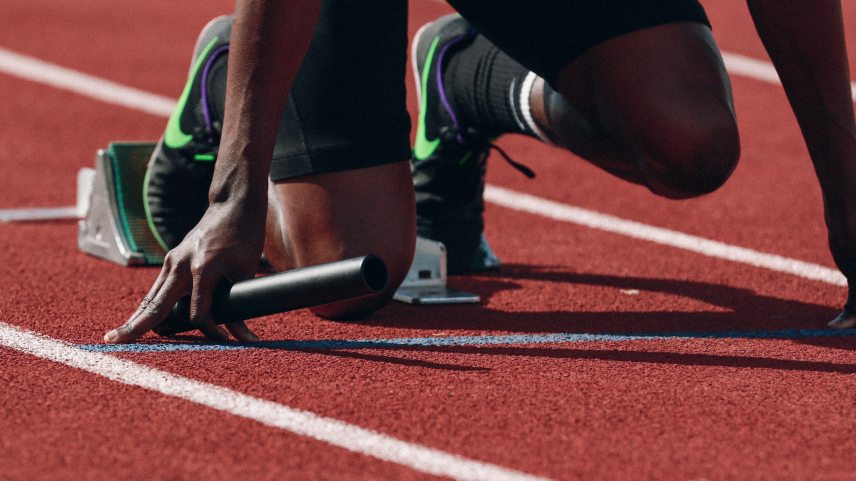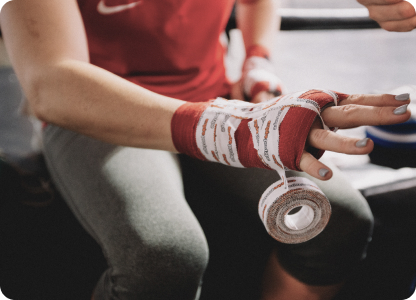What makes the great athletes so great? It’s a combination of multiple factors: years of dedication, training, and proper nutrition. However, there’s another factor that is often overlooked. It’s the psychological effort that’s required to continue competing even when you’re tired. The ability to push further despite discomfort.
What’s the secret to reaching performance heights? There are a few mental techniques you can try, so read on to find out what they are.
Visualize your success
Have you ever pictured yourself making the perfect serve, or getting the ideal free kick? It might sound silly, but the act of visualizing your next move or a successful situation can come in handy. It turns out that simply imagining your next move can improve your confidence, concentration, and even boost your skills and strength. It’s also a great way to speed up learning a new skill and it can make you more stress-tolerant during competitions1.
For best results, use imagery that involves all your senses, including hearing, touch, and smell. This technique can be used during training and competition alike, helping you get that edge on your opponent.
Set your goals
If you’re a person that enjoys setting goals for yourself, you can benefit from using the technique in sport. Goal setting boosts performance, and depending on the type of goal you set, you can get different benefits.
If your goal is a process goal, like doing drills for two hours twice a week, you can improve motivation and feel more able to achieve your goal. If your goal is a result-oriented goal, like winning 3 matches in a training session, you can see a decrease of nervousness and better effort mobilization2.
Setting goals can be a great way to keep you motivated to improve your performance. It’s especially effective for your training sessions.
Talking to yourself
Do you catch yourself making negative comments about your performance when things don’t go your way? Talking to ourselves is a common behavior that you can use to your advantage in high-pressure situations. You can do it in your head or even say things out loud.
There are two types of self-talk. One is spontaneous and usually describes how you feel. The other is goal-directed and can be used to overcome challenges. You can use both techniques together3.
Self-talk can lead to more self-confidence, better performance, and make you more likely to reach your goals4.
You might also find self-cueing useful. This is when you use certain words to remind yourself of the action you need to do. If you need to hit a ball from the bottom, you might use the word “up” just before you do the action. This can speed up learning, helping you progress. Or you can use this technique to boost your motivation and confidence before a competition by telling yourself motivational things5.
Remember that it’ll take time to get used to this technique and long-term usage will be more effective than short-term interventions.
How to beat nervousness
Feeling nervous before a competition is something every athlete experiences, no matter their career stage. But nerves can detrimentally affect performance. Luckily, there are a few different ways you can beat the jitters and get it under control.
One of the things you can do is try to re-direct your attention. If you’re finding yourself feeling nervous, try switching your focus to something else. For example, you might count the number of letters on a billboard. If you’re finding your breathing becoming shallow, focus on a spot near your navel and try tummy breathing. These strategies can help distract you and allow you to re-focus on your performance6.
You might also want to develop some relaxation techniques. That can be as simple as using imagery. Imagine yourself in a place that is associated with relaxation or rest. You can also meditate. Alternatively, you can try more physical techniques, for example Progressive Muscle Relaxation. This is where you tense your muscles, hold the tension, then release them bit by bit. Or you can try breathing techniques7.
Focus, focus, focus
Another important aspect of performance is our ability to focus on tasks. During a competition, you should stay attuned to your opponent, plan your next move and act when you need to. This all requires immense amounts of concentration8.
On top of that, you might find your focus affected by distractions like the spectators, your own nervousness, or loud sounds. Luckily, there are a few exercises that can help you improve your concentration, like9:
- Controllable vs uncontrollable – understand what is within your control and what factors are out of your control and are likely to distract you;
- Simulate the distraction – during training, place yourself into situations that might cause you to get distracted;
- Re-focusing – do drills to help you come back from a distracted state;
- Give yourself hints – positive cues can help you shift your focus back to where it needs to be.
The key to success
What do high-achieving athletes have in common? They don’t give up. Resilience is and always will be a key aspect of great performance. Resilience means that you’re better able to deal with setbacks and respond positively when you fail10. Developing this skill is essential for performance.
Reframing how you see stressful situations is key. Athletes see them as a challenge instead of a threat. Growing your self-confidence, motivation and having a good support network can all positively affect your resistance11.
These techniques can help you improve your performance in both training and competition. Remember that to excel, we must look at our performance holistically, considering the training regimen, nutrition, stress-relief, and mental well-being. The techniques covered in this post will be helpful if practiced consistently over a period of time. Stay on track, do your best and reach your goals!
Remember to talk to your coach if you have concerns about your psychological health.









